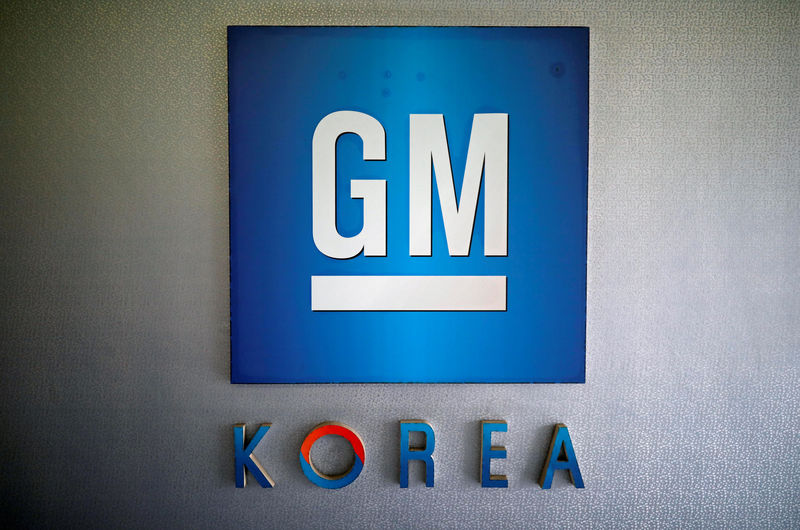By Hyunjoo Jin and Ju-min Park
SEOUL (Reuters) - General Motors (NYSE:GM)' South Korean unit has averted a bankruptcy filing, but analysts and customers, as well as the South Korean government, are debating how long the loss-making company will remain in business.
GM Korea agreed a last-minute wage deal with its union on Monday, paving the way for nearly $500 million in fresh capital injection by the government.
But the government remains unconvinced about the company's longer-term commitment to remain in business and is pressing GM for a detailed plan. It worries that the U.S. auto giant's strategy of exiting unprofitable markets may lead to a complete pull out from South Korea.
"Our condition for the support is a long-term viability plan from GM. When we say long-term, we are talking about 10 years and more," a government official familiar with the GM issue told Reuters.
GM said the plan will help it restructure and eventually halt slumping sales and shrinking factory operations.
"This provides a way for us to turn around the business in the short term and allow us to look at the long-term viability of our business and our product lineup," GM spokesman David Albritton told Reuters.
But it could be a tall order, as the three remaining out of GM Korea's four factories are running below full capacity due to GM's exit from Europe, waning demand for small cars, its mainstay, and consumer concerns about the company's future in South Korea.
GM has said it will add two new sport utility vehicles in South Korea as part of an $2.8 billion investment over the next 10 years, but production of those new models will start only from late 2019.
"We cannot comment on specific product plans, but you have to think about these two new models as just the beginning," GM spokesman Albritton said.
COMPLETE EXIT?
Once the backbone of GM's global expansion strategy, GM Korea produced close to a fifth of its global output of Chevrolet vehicles at its peak.
But a sharp rise in labour costs, and GM's shift in strategy to scale back its presence in unprofitable markets following its emergence from 2009 bankruptcy, have prompted speculation that it may pull out in South Korea.
A source close to GM's Detroit management said the company had been looking for a complete exit from South Korea in line with CEO Mary Barra’s strategy of focusing the company on the United States and China, a view echoed by some analysts.
"Our base case now assumes that GM substantially exits GM Korea. Restructuring in Korea is extremely expensive, and it may take many years to play out," Morgan Stanley (NYSE:MS) said in a report on Friday.
"GM doesn't have the time or the resources to devote to regions that lack visibility into generating a positive return or even a positive margin," it said.
GM denied it was contemplating such a move.
"We are at a starting point with our 10-year long term plan," an executive at GM Korea told Reuters.
"There has been long controversy whether we will pull out of Korea, but our plan has become more concrete now," he said.
South Korean government officials say they have no choice but to salvage GM to protect jobs.
A senior government official told Reuters even in the worst case scenario of GM pulling out, it would not be a bad deal if South Korea can save hundreds of thousands of jobs over the next five years in return for taxpayers' money.
However, the official added that the government wanted to regain veto powers of state-run Korea Development Bank (KDB) that allow it to block GM's potential sale of its assets. The veto expired last year.
KDB is the second biggest shareholder of GM Korea with a 17 percent stake. The U.S. automaker owns 77 percent of GM Korea, while China's SAIC Motor Corp Ltd controls the remaining 6 percent.
ABYSMAL STATE
When GM acquired 42 percent of Daewoo Motors in 2002 to get a foothold in South Korea, it bought the failed carmaker at a "ridiculously low" price of $251 million, as it was "in the most abysmal financial state possible," former GM executive Bob Lutz wrote in a book.
But it proved to be a "highly capable engineering and design source" which formed the backbone of GM's Asian strategy under the Chevrolet brand and the brand's global growth, he said.
GM Korea made a spectacular turnaround, boosting volume by over three-fold to a record 940,000 vehicles in 2007 from 2002.
But it got into trouble in 2014, hit by GM's exit from Europe announced a year earlier. Its production volume slipped to just 520,000 cars last year and prompted it to post a net loss of $1.1 billion, its fourth straight year in the red.
Earnings will come under pressure again this year, as domestic vehicle sales have slumped over 50 percent since February when it announced the restructuring.
"For the moment, GM may need South Korea to fill up a shortage of engineering resources after GM's sale of Opel in Europe," Park Pyong-wan, a former GM Korea executive, told Reuters, adding the company has not made any new hires since 2013.
"But in the long term, GM Korea will not last long."
